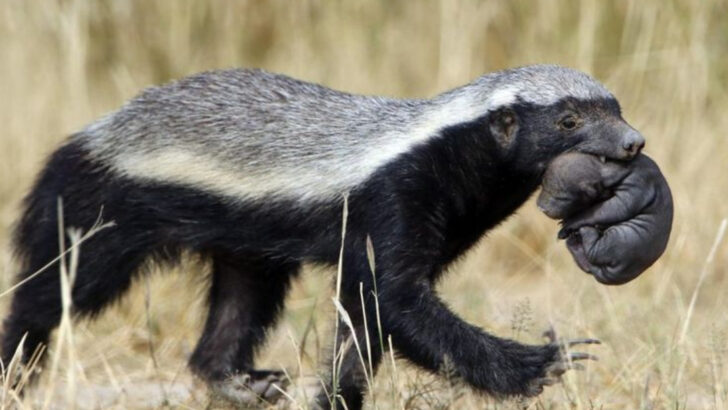If these two ever crossed paths in the wild, the earth might crack from sheer attitude alone.
The wolverine and the honey badger aren’t just tough—they’re feral forces of nature packed into surprisingly small bodies. One storms through snow-covered forests like a mini bear on a mission. The other struts through snake-infested savannas with a death glare and zero fear.
They’re both scrappy.
Both relentless.
And both have made predators twice their size back off in pure panic.
But who would actually win in a showdown?
That’s where things get wild.
Claws, teeth, bone-breaking bites, and tempers that would terrify a grizzly—we’re comparing 13 savage traits that might just tilt the scales in this heavyweight brawl of bite-sized beasts.
Physical Strength
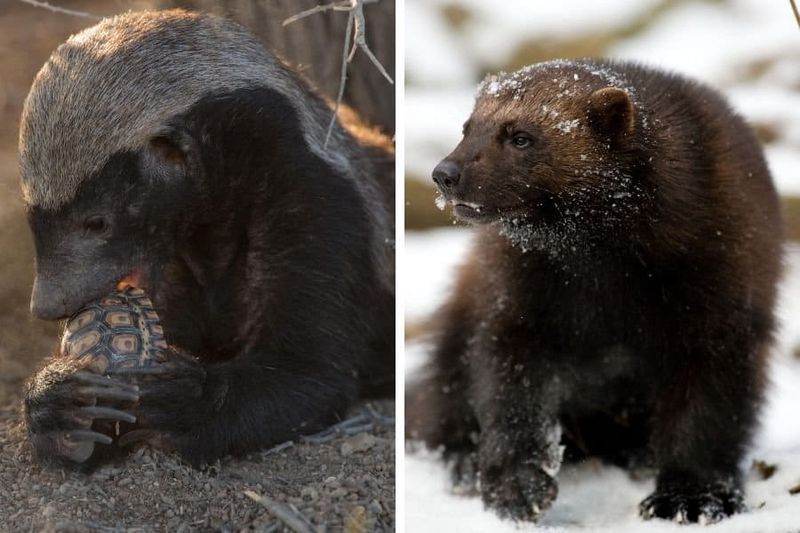
The wolverine exudes raw power with its muscular frame, a true embodiment of strength in the animal kingdom. Known for its ability to take down prey several times its size, this tenacious creature relies on brute force to dominate its territory.
In contrast, the honey badger, although smaller, boasts impressive strength for its size. It can fend off larger predators using sheer physical power, making it a formidable opponent.
Both animals use their strength to survive in harsh environments, proving that size isn’t the only measure of power.
Ferocity

With an unrivaled reputation for ferocity, the honey badger fears no adversary. Its aggressive nature and willingness to confront larger predators are legendary, earning it the title of the world’s most fearless animal.
Wolverines, too, are not to be underestimated. Known as the “glutton” of the forest, they attack with relentless aggression when provoked. Their ferocity in territorial disputes ensures they rarely back down from a fight.
Together, these traits underscore their status as formidable wild animals, each ready to assert dominance over their domain.
Adaptability
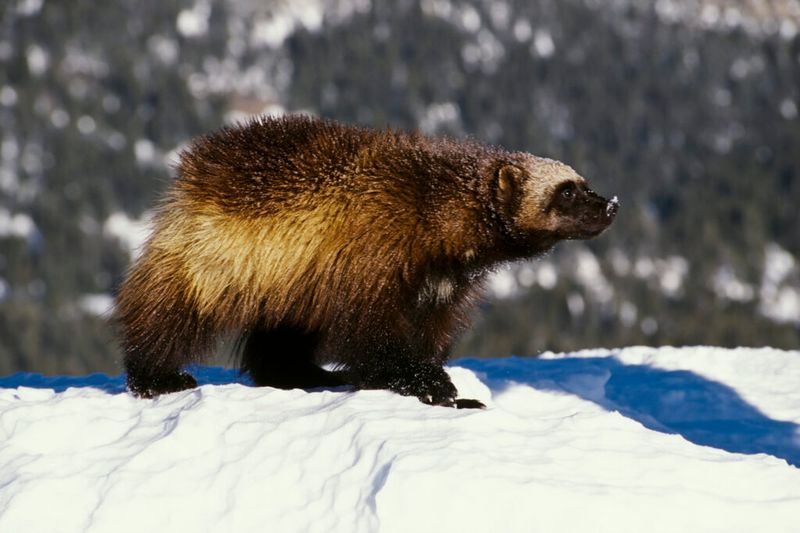
Adaptability is key in the wild, and the wolverine excels with its ability to thrive in diverse habitats. From icy tundras to dense forests, it adjusts its behavior to suit its surroundings, displaying remarkable survival instincts.
The honey badger, on the other hand, showcases its flexibility in adapting to various environments, from African savannas to rainforests. Its resourcefulness in finding food and shelter highlights its resilience.
Both creatures demonstrate adaptability, ensuring their survival in ever-changing landscapes, proving that being versatile is crucial to survival.
Fearlessness
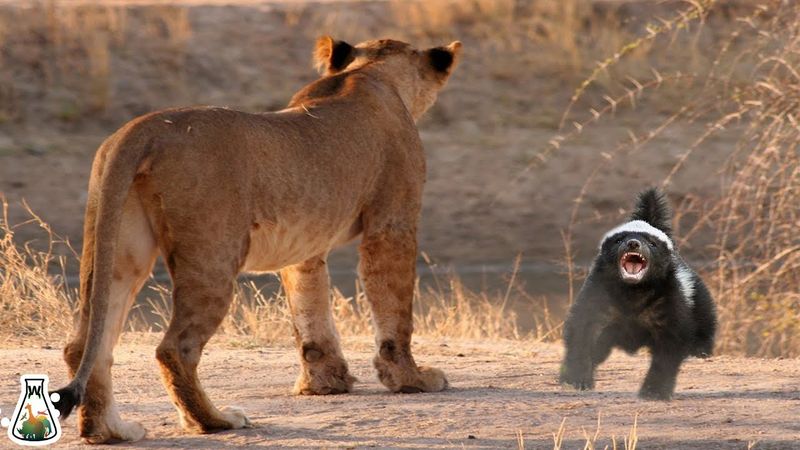
Fearlessness defines the honey badger, known for its audacity to confront lions and venomous snakes. This daring nature is evident in its confident strut and fearless confrontations with larger threats.
Wolverines, too, embody fearlessness with their willingness to tackle bigger animals, showcasing their bold nature. They venture into risky territories in search of food, driven by an insatiable hunger.
Both animals thrive on their fearlessness, making them unpredictable and dangerous in the wild, never hesitating to face challenges head-on.
Defensive Mechanisms
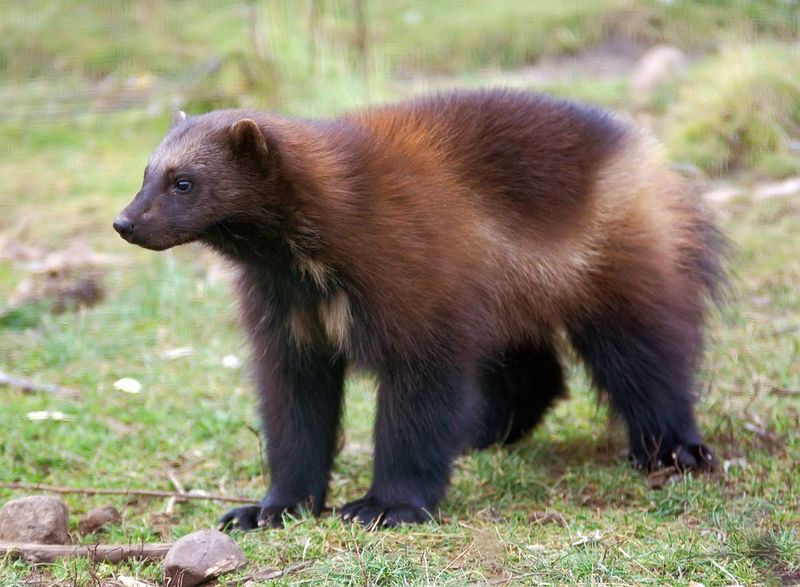
With sharp claws and strong jaws, the wolverine employs effective defensive mechanisms to protect itself. These natural weapons make it a formidable opponent against intruders.
The honey badger, famous for its resilience, uses thick skin as armor against attacks. It can twist and turn in tight situations, evading danger with agility.
Both animals utilize their defensive traits to deter predators, showcasing unique adaptations that ensure their survival even in dire situations.
Dietary Habits
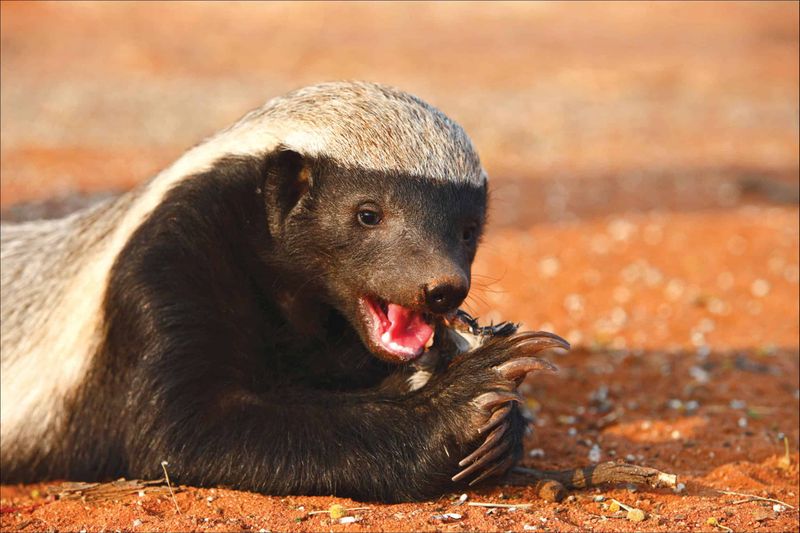
Wolverines are opportunistic eaters, consuming everything from small mammals to carrion. Their diverse diet allows them to survive in various conditions, reflecting their adaptability.
Honey badgers, known for their voracious appetites, hunt snakes, insects, and even scavenge. Their willingness to eat almost anything ensures they rarely go hungry.
These dietary habits highlight their survival instincts, proving both animals to be relentless in their pursuit of sustenance, adapting to available resources.
Territorial Nature
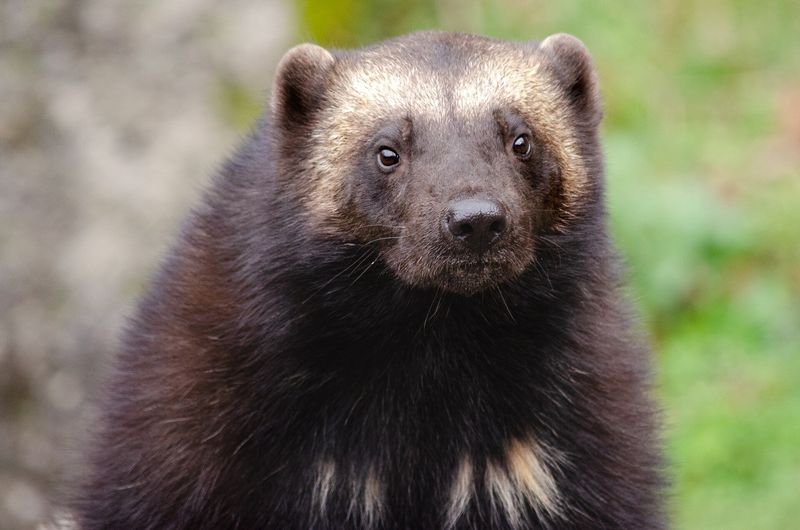
Territorial and fiercely protective, the honey badger marks its domain with unmistakable scents. Its territorial disputes with larger predators showcase its audacity.
Wolverines, too, maintain large territories, patrolling them to assert dominance. They defend their space with vigorous aggression, ensuring their realm is respected.
Both animals exemplify strong territorial instincts, emphasizing their need to control and protect their habitats, a trait that ensures their continued survival in harsh environments.
Reputation
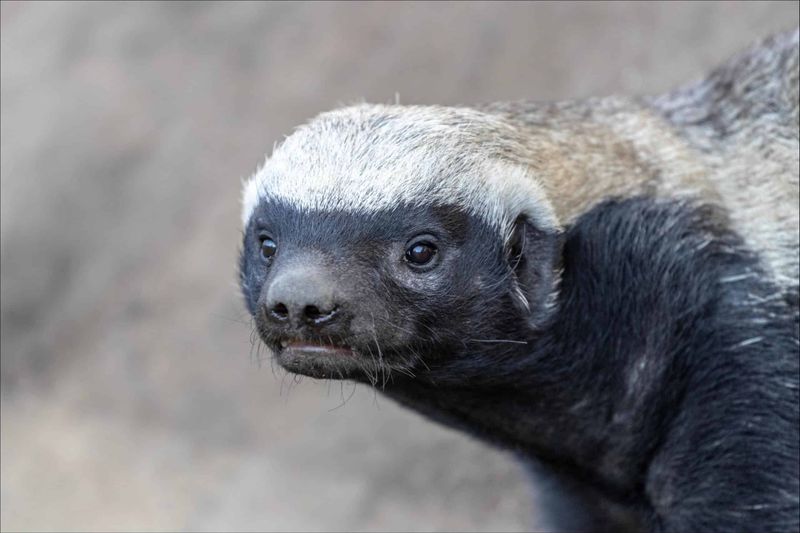
Renowned for their notoriety, both the honey badger and wolverine have earned fearsome reputations in the animal kingdom. Their fearless behaviors and aggressive tendencies contribute to their legendary status.
The honey badger’s ability to defy larger predators and the wolverine’s infamous gluttony are tales often recounted by wildlife enthusiasts.
These reputations have cemented their roles as icons of resilience and fearlessness, making them subjects of admiration and intrigue in the wild.
Longevity
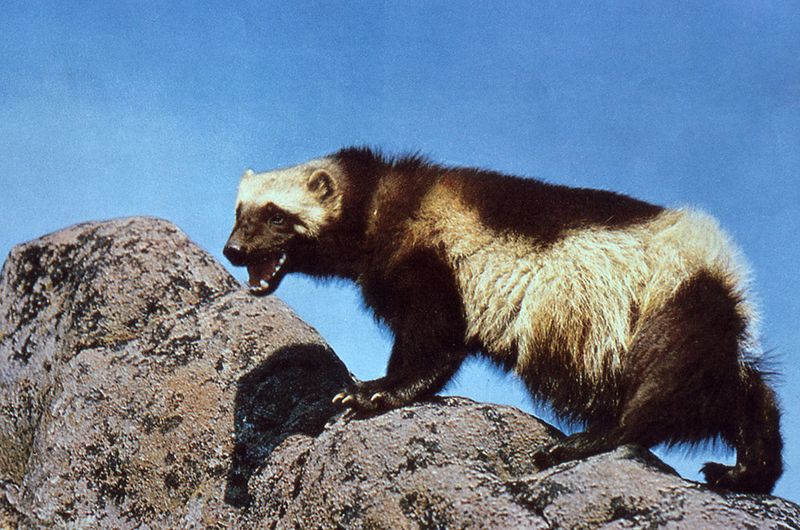
Longevity in the wild signals resilience, and both species exhibit impressive lifespan traits. Wolverines can live up to 13 years, surviving harsh climates and environmental challenges.
Honey badgers, often living over a decade, demonstrate their ability to endure adverse conditions. Their robust health and adaptability contribute to their long lives.
These longevity traits underline their survival skills, emphasizing their capability to navigate and thrive in the wild for many years.
Parenting

In the animal kingdom, parenting is pivotal, and honey badgers are attentive caregivers. They invest time in teaching their young survival skills, ensuring their offspring are well-prepared for the wild.
Wolverines, too, demonstrate dedication to parenting, nurturing their young in dens until they can venture out independently. This protective nature fosters a strong family bond.
Their parenting styles underscore the importance of nurturing and guidance, showcasing the compassionate side of these fierce predators.
Agility
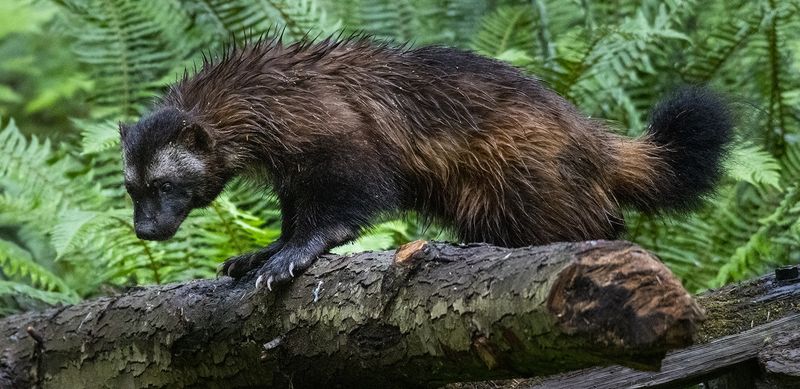
Agility sets these creatures apart, with wolverines known for their nimbleness in traversing rugged terrains. Their climbing ability aids in hunting and escaping threats.
Honey badgers, with their quick movements and sharp reflexes, navigate their environments with ease, avoiding danger and catching prey.
This agility ensures their survival, enabling them to adapt swiftly to challenges, proving that in the wild, quickness can be as crucial as strength.
Sense of Smell

Possessing a keen sense of smell, honey badgers can detect food over long distances. This olfactory prowess aids in locating hidden prey and avoiding predators.
Wolverines, too, rely on their strong sense of smell to track down food, ensuring they never miss a meal. This sensory advantage is crucial in their harsh habitats.
Their acute senses highlight the importance of olfaction in survival, proving that in the wild, being aware of one’s surroundings can mean the difference between life and death.
Endurance
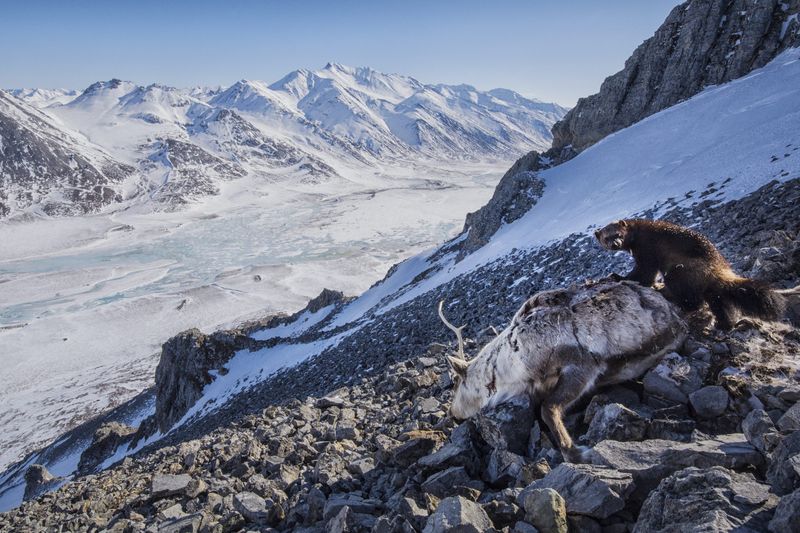
Endurance is vital for survival, and wolverines excel with their ability to travel long distances in search of food, showcasing relentless determination.
Honey badgers, equally persistent, can endure long hunts and confrontations, never wavering in their pursuits. This stamina ensures they outlast many challenges.
Their endurance traits emphasize their tenacity, proving that in the wild, perseverance often leads to success, making them formidable survivors in their respective domains.

